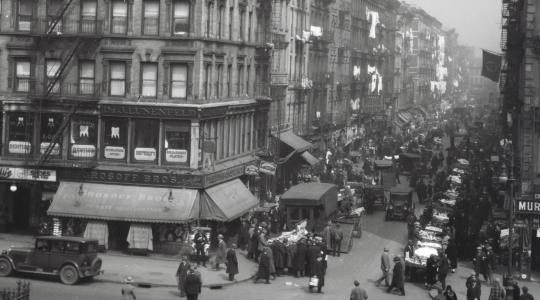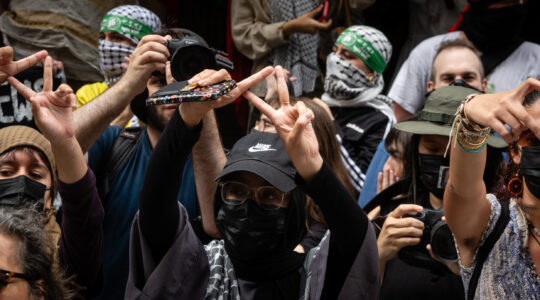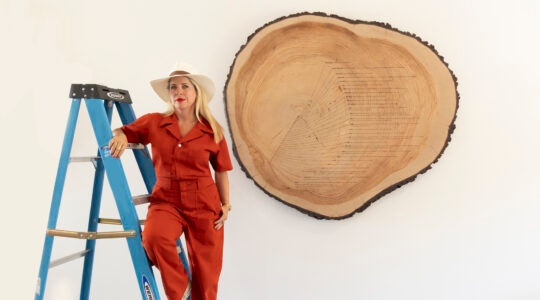I began playing soccer with my Israeli father when I was 5, just after the Yom Kippur War in 1973. Perhaps it was just coincidence, my physical coordination having then reached the point of being able to kick a ball the size of my torso around a patch of grass. But at some point I began to link my father’s insistence on his son’s physical self-sufficiency with his existential dread of what might happen to Israel.
Growing up, Ari was the coach of our neighborhood team, and something of a local hero. A former "special ops" soldier who brought to the game the physical toughness and tactical smarts he learned in the IDF, his accent and biography alone were enough to inspire fear and loyalty in his charges.
But as a sabra, that prickly indigenous plant that’s tough on the outside and sweet on the inside, he was prone to slightly mistranslated endearments like "Kick the ball, sweetheart!" when one of his players, especially me, got close to the goal. There wasn’t a kid from my school, tired, bruised and thirsty at the end of a game, who wouldn’t have gone the extra step to get a booming "Way to go, sweetheart!"
The combination this month of Father’s Day, the soccer World Cup and the escalating violence in Israel brought these memories to mind. My father, like so many Israelis, only wants what is good and sweet for his family. And it comes out whenever he spends time with our 3-month-old, Aviv. You’ve never heard such noises and singing from a 64-year-old businessman. But there is a serious side too. When the two of them are by themselves I hear my father tell him: "One day soon we’ll play soccer, and go for long runs. You’ll be strong like your saba." Sometimes he says this in Hebrew, as if the muscularity of the language itself might add weight to his entreaties, imparting to Aviv the strength my father needed to grow up in Israel, and that today’s Israeli kids still need in spades.
In the 30 years that have passed between my first practice with my father and his first conversations with my son, I have steadily moved away from tough physicality, and toward mental toughness. In high school I gave up competitive sports to focus on school, and before I knew it I was a working adult. I still played a little ball here and there, but the instinct and desire to get up and run at the drop of a hat disappeared. I increasingly interpreted Ari’s expression to "use your head," once a call to athletic heroism, as figurative. My father, however, despite being an executive and not a boxer, never deviated from his physical regimen, maintaining his fitness and his belief that physical training was the groundwork for making it in the world.
Eight years ago, with the World Cup held in the U.S. for the first time, I decided to watch some games on TV. Imagine my surprise when, after watching Spain and South Korea draw to a tie in the opening round, I felt the overwhelming desire to go to sleep clutching my soccer ball. It was an odd and embarrassing instinct, which I promptly suppressed. But my consumption of television soccer increased dramatically, and I began to call my father every day to discuss the games.
On the second day of that tournament, I screamed over to Central Park after work, my father’s voice urging me on. At one end of the park I found a bunch of Englishmen and a smattering of Germans and Americans kicking a ball around. I walked over, scratched my head, and signaled for the ball. I got it soon enough, and we all began kicking in the round. The circle widened like a hora, and the passing continued as if the ball were on a string. A real game soon followed, a dozen weekend warriors running and jumping as if their lives depended on it. Every scrape was a medal, every broken watchband a sign of fearlessness.
When I realized that the 2002 World Cup was about to begin, I called my father and we decided we would watch as many games as possible together. As it turned out the games were all on in the middle of night, but on Father’s Day we did go running in the mountains, something we haven’t done in many, many years. Like the old days, when we got to the hills, we sped up instead of slowing down ó what soldiers do, I now understand, if they are trying to overtake an enemy position from below. We both did it on instinct, and I realized that although I seldom run these days, and spend my waking hours in front of a computer, my childhood "training" continues to stick.
The past year, for Israelis and Americans, has felt a lot like 1973, with so many people reeling from deadly, disorienting assaults. I grew up in a much safer era than my father did, and perhaps even than my son will, and there is something comforting about hearing my father speaking Hebrew to Aviv, letting him know that he will be expected to be tough, that it is his birthright, and his armor. Just to get up in the morning and read the newspaper requires it. The sweetness of sabras, wherever they grow, must be protected somehow.
Daniel Schifrin, whose column appears the fourth week of the month, is at work on his first novel.




